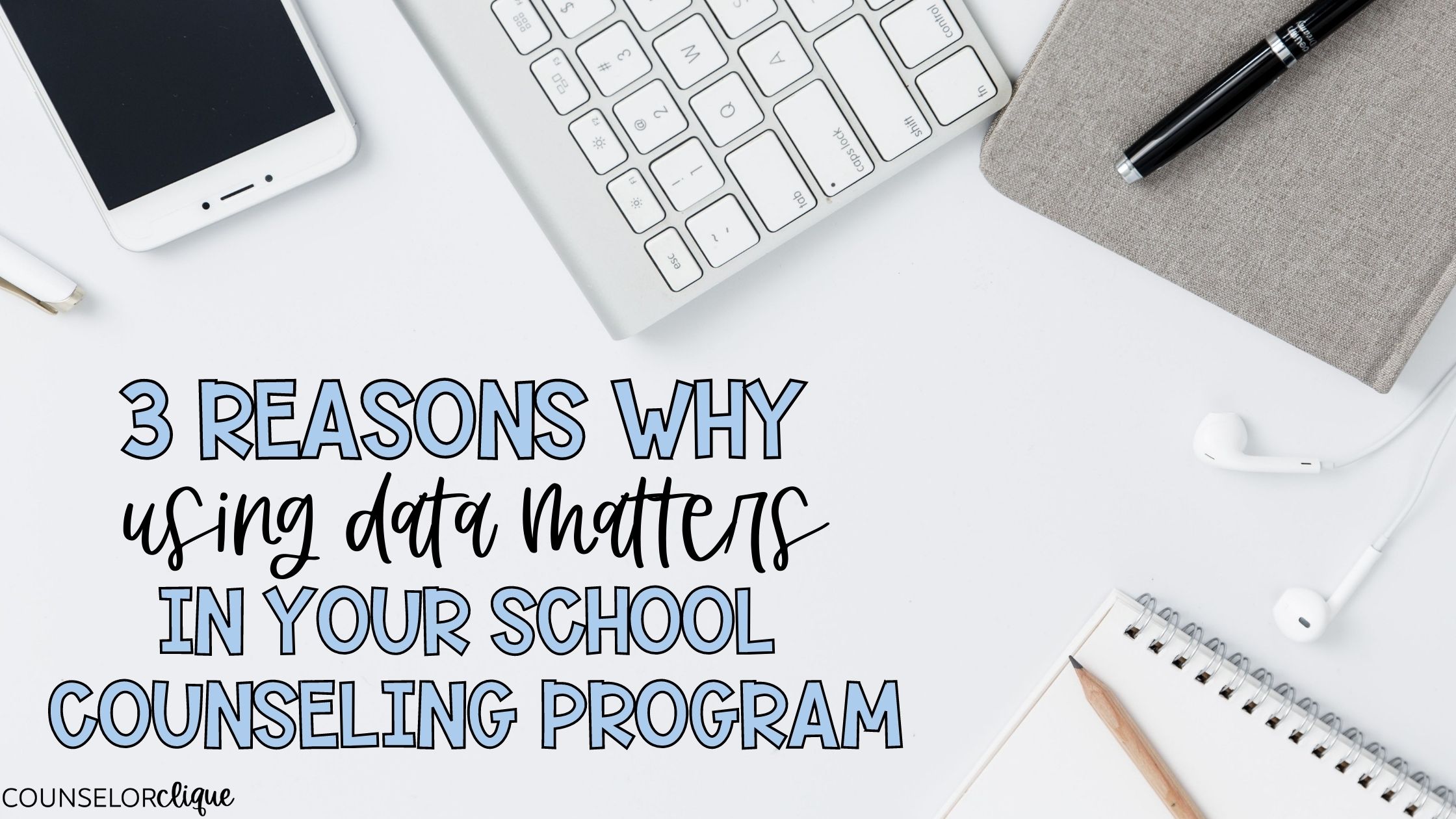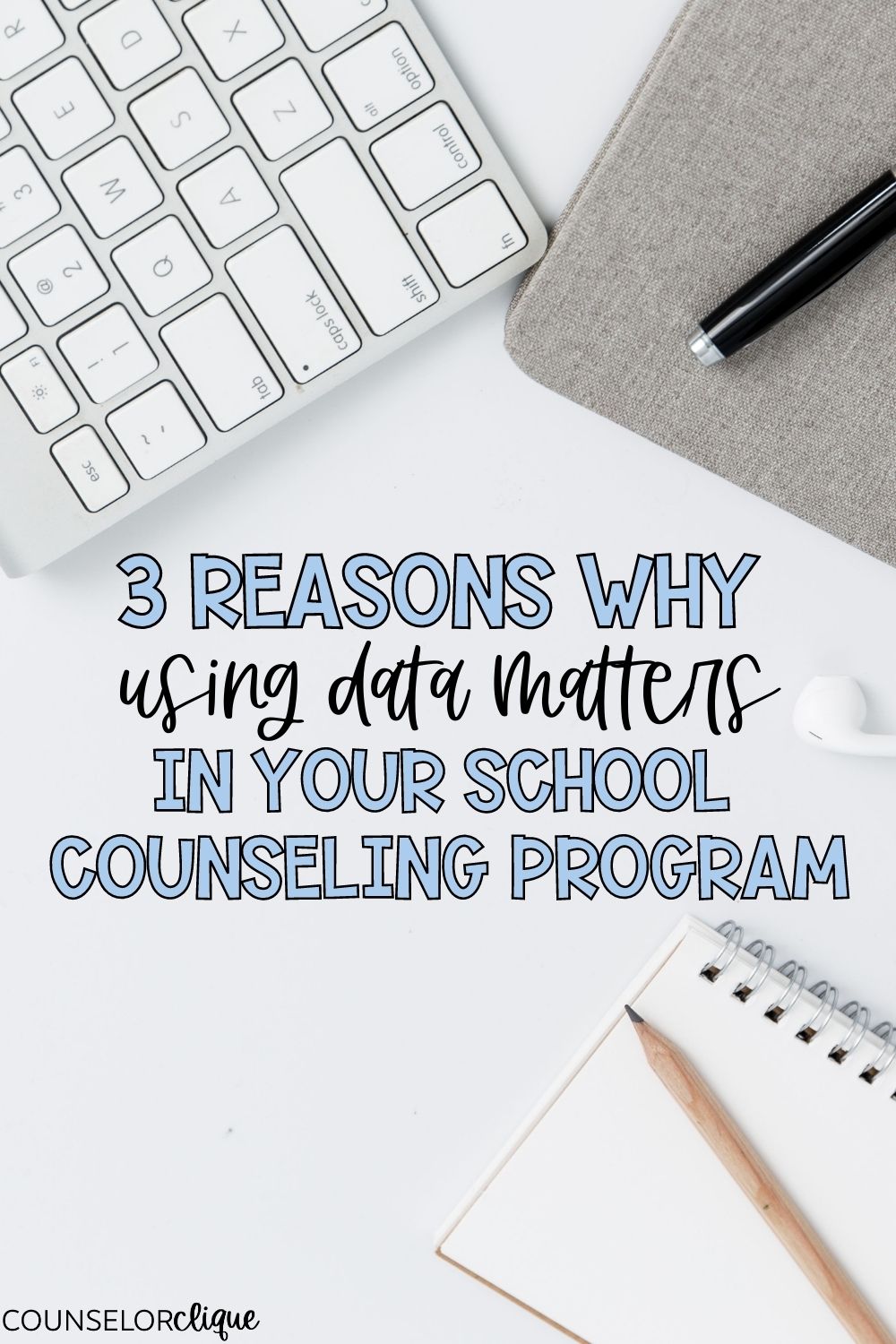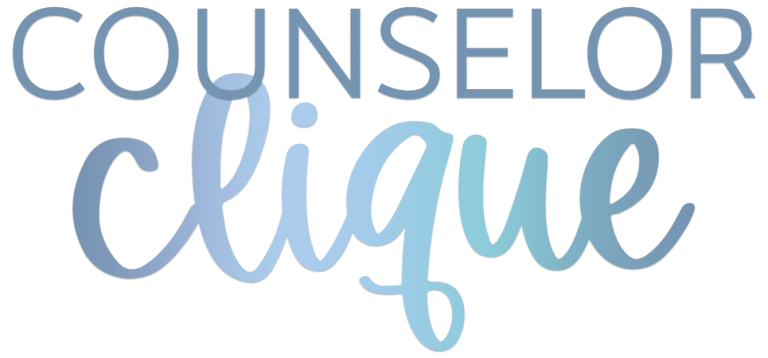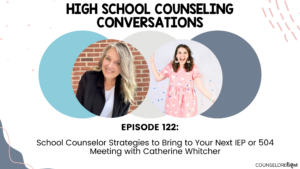When asked why counselors aren’t using data, I found a lack of understanding about its usefulness (it makes total sense that you wouldn’t collect data if it was useless or confusing to you) and a clear list of the roadblocks that counselors face.
Once you understand why using data actually matters, you’ll be able to identify misconceptions about data that keep you stuck, new ways to incorporate data as an advocacy tool, and unique places to share your data with your stakeholders.
Check out these “3 Reasons Why Using Data Matters in Your High School Counseling Program.” Think of these 3 reasons like a “before,” “during,” and “after” of using data when considering its importance.

1- Using data ethically informs the direction of your school counseling program.
Before you even get started for the year, you can set some standards for using data in the planning of your large-scale program (think bird’s eye view of your entire year). Perhaps you have an off-campus planning day or maybe you’re a one-counselor-show who spends a full day arranging your plans in your office before students arrive.
Use the beginning of the year to examine any trends or gaps from the end of your last school year and set new SMART goals for this year. Focusing on 2 to 3 goals should be sufficient. Use these SMART goals in your annual administrative conference packet (formerly your “annual agreement”) between counselor and principal. Think through the ways you’ll be using data to align with your goals in a meeting with your principal or administrator.
Next, when you’re planning your calendar for your year including what organized programming you will provide for your students, it’s important that you’re using data to drive these decisions instead of haphazardly piecing something together on the day you want to do it. As school counselors, we have an ethical obligation to plan a school counseling program using standards (ASCA Mindsets and Behaviors) and data.
If you plan your classroom lessons, small groups (try collecting data using this spreadsheet), and events by checking out your data FIRST, you’ll have a clear definition of success for your year. Prepare yourself: your initiatives won’t always succeed… but at least you’ll be on the right track to determining effectiveness when you begin by using data.
2- Using data establishes trust in your school counseling program.
Data brings validity to what you’re already doing and what you dream of doing. Whether it’s process, perception, or outcome data, you can expect your results to be more readily trusted when you’re using data to back them up.
I often found support from administrators, teachers, and community members with my new, often off-the-wall ideas because I had the data to prove a need and an idea for how I intended to meet that need. Whether I needed physical resources like money or space in the school or abstract resources like time and support, my data-driven goals and the results I had gotten in the past were enough to garner those resources. The more I used data, the more yeses I heard from those making the big decisions above me.
Yes, it may take time to dig up, collect, and interpret data; however, it’s worth it. Data goes before you to establish trust where your words may otherwise fall short.
3- Using data advocates for your school counseling program.
Data can speak to both gaps and results in ways that your reputation and words cannot. Some of your most influential stakeholders’ ears will perk up when they have disaggregated and easy-to-understand data in front of them. (Plus, even really simple data can make you look really put together and capable!)
Be sure to share the outcomes of your initiatives with anyone who has been involved or might be involved in the future. I know it’s tough to brag on yourself (we’re not used to that as counselors), but think of it like tying up the loose ends of a project before you move on to the next thing. Your stakeholders want to know how it turned out! Share your results with them via the school announcements, the school website, social media, advisory councils, PTA meetings, faculty meetings, school board meetings, or anywhere else you can possibly get the word out!
If you feel stuck when it comes to data, check out ASCA’s fourth edition of “Making Data Work” to get some practical understanding of how data can work in your school counseling program.
If you’re looking for ideas to start collecting some simple data in your school, download this free High School Counseling Data Collection Guide, and take some action immediately!






